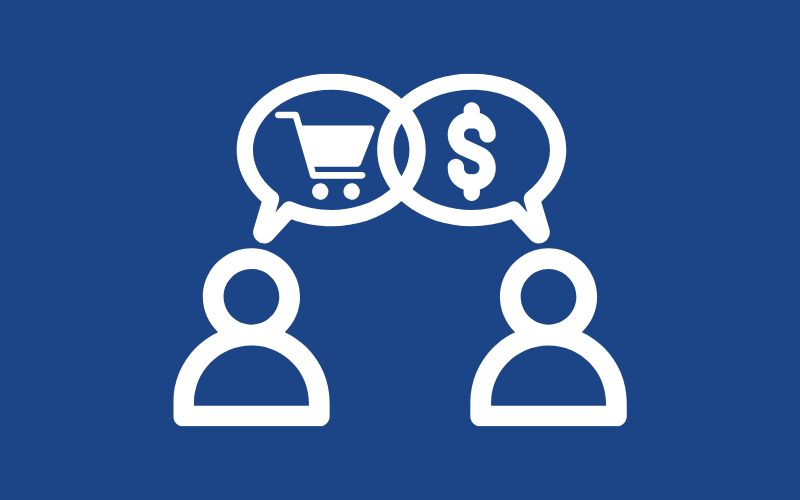Introduction
In today’s fast-paced world, the landscape of consumer expectations is constantly evolving. Understanding how consumer expectations are changing is crucial for businesses to thrive in this dynamic environment. This comprehensive article delves into the various facets of this transformation, offering expert insights, statistics, and real-world examples to shed light on the topic.
Consumer expectations have a profound impact on business strategies, marketing efforts, and customer relationships. In this article, we will explore the key drivers behind these changing expectations and how businesses can adapt to meet them. So, without further ado, let’s dive into the ever-shifting realm of consumer expectations.
How Are Consumer Expectations Changing?
In this section, we will explore the core changes in consumer expectations.
The Era of Personalization
In a world where AI and data analytics reign supreme, consumers now expect a highly personalized experience. They anticipate that businesses will tailor their offerings to suit individual preferences. Gone are the days of one-size-fits-all solutions.
Today’s consumers want products and services that cater specifically to their needs. For instance, e-commerce giants like Amazon and Netflix leverage algorithms to recommend products and content based on a user’s browsing and viewing history. This personalization creates a sense of individualized attention that modern consumers crave.
Instant Gratification
The digital age has given rise to the culture of instant gratification. Consumers demand fast, efficient, and hassle-free experiences. Whether it’s same-day delivery, one-click shopping, or on-demand streaming, people expect immediate results.
Businesses must optimize their processes to meet these expectations. E-commerce companies have embraced the concept of “Buy Now, Pay Later” to offer customers a swift and convenient shopping experience. Ensuring quick response times and efficient services is now a baseline requirement.
Transparency and Authenticity
In an age of information overload, consumers have become more discerning. They seek transparency and authenticity from businesses. They want to know the story behind the brand, the source of products, and the company’s values.
This shift has led to the rise of ethical consumerism, where people choose to support brands that align with their values. Businesses must be forthright about their practices, environmental impact, and supply chain. Failing to do so can lead to distrust and, consequently, a loss of customers.
Omni-Channel Experience
The boundaries between online and offline shopping are blurring. Consumers expect a seamless experience across all touchpoints. This means they should have access to information, products, and customer support whether they shop in-store, online, or through mobile apps.
Retailers are integrating technologies like augmented reality to enhance the in-store experience and investing in user-friendly mobile apps. This omni-channel approach ensures consumers can engage with a brand on their terms.
Social Responsibility
Today’s consumers are more socially conscious than ever. They expect businesses to be responsible corporate citizens. Companies are now judged not only on their products and services but also on their impact on society and the environment.
Brands that take a stand on social and environmental issues often garner greater consumer loyalty. Businesses must be proactive in their efforts to contribute to social causes and sustainability.
FAQs
Are consumer expectations the same for all industries?
Consumer expectations can vary across industries. While some expectations, like transparency and personalization, are widespread, specific requirements may differ. For example, consumers may have different expectations when buying a car compared to ordering food delivery.
How can small businesses keep up with changing consumer expectations?
Small businesses can adapt to changing consumer expectations by staying informed about industry trends, leveraging technology, and actively seeking feedback from their customers. Embracing innovation and flexibility can help small businesses remain competitive.
What role does technology play in shaping consumer expectations?
Technology plays a significant role in shaping consumer expectations. It empowers consumers with information, enables personalized experiences, and facilitates convenience. As technology continues to advance, consumer expectations are likely to evolve in tandem.
Is it essential for businesses to engage in social responsibility efforts?
Engaging in social responsibility efforts is becoming increasingly essential for businesses. Consumers value companies that are committed to making a positive impact on society and the environment. Businesses that demonstrate a genuine commitment to social responsibility are often more attractive to customers.
Can businesses overpersonalize their offerings?
Yes, businesses can overpersonalize their offerings. While personalization is essential, it’s crucial to strike a balance. Too much personalization can feel invasive and lead to privacy concerns. Businesses should be mindful of this and respect customers’ boundaries.
How can businesses anticipate and adapt to changing consumer expectations?
To anticipate and adapt to changing consumer expectations, businesses should conduct regular market research, collect customer feedback, and stay updated on industry trends. They should be agile in adjusting their strategies and offerings to meet evolving demands.
Conclusion
In conclusion, the evolution of consumer expectations is a continuous process driven by technology, social changes, and market dynamics. Businesses that can adapt to these changing expectations will not only survive but thrive in this dynamic landscape.
To meet the demands of modern consumers, businesses must embrace personalization, provide instant gratification, be transparent and authentic, offer an omni-channel experience, and demonstrate social responsibility. Adapting to these evolving expectations is not just a choice; it’s a necessity for long-term success.
Consumer expectations will undoubtedly continue to change, and businesses that remain agile and customer-centric will be best positioned to meet the challenges and opportunities that arise.


